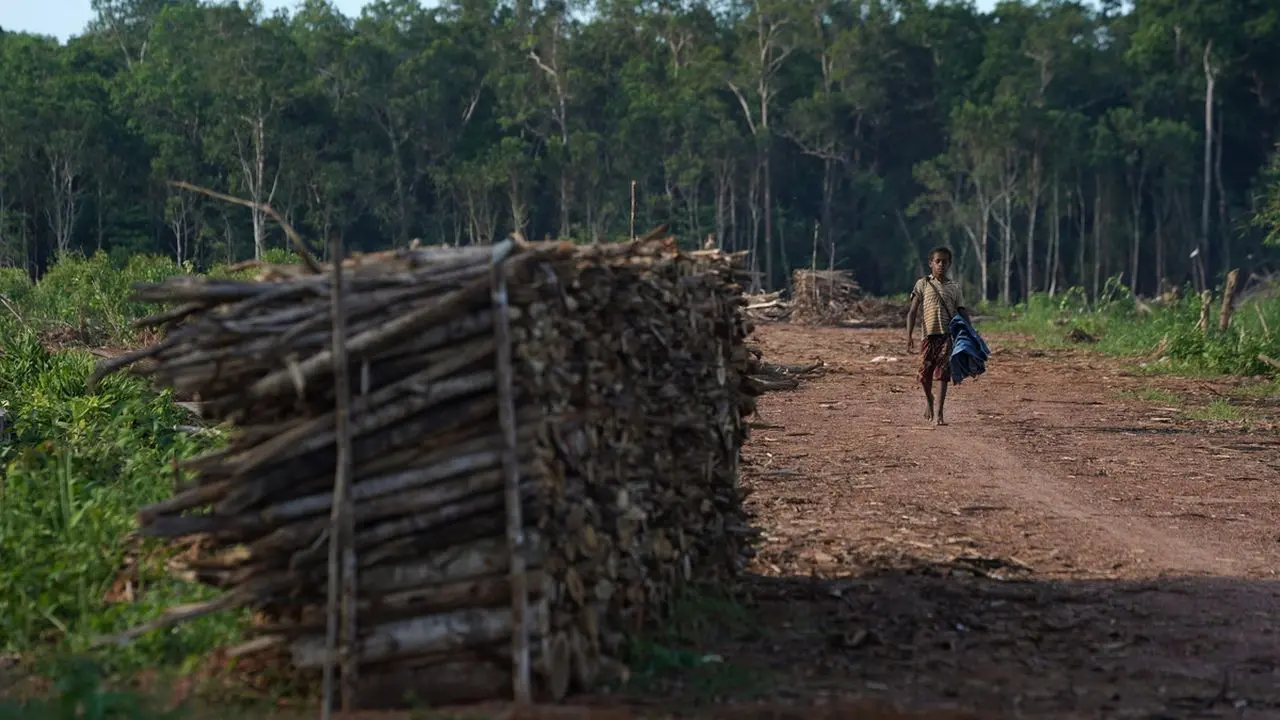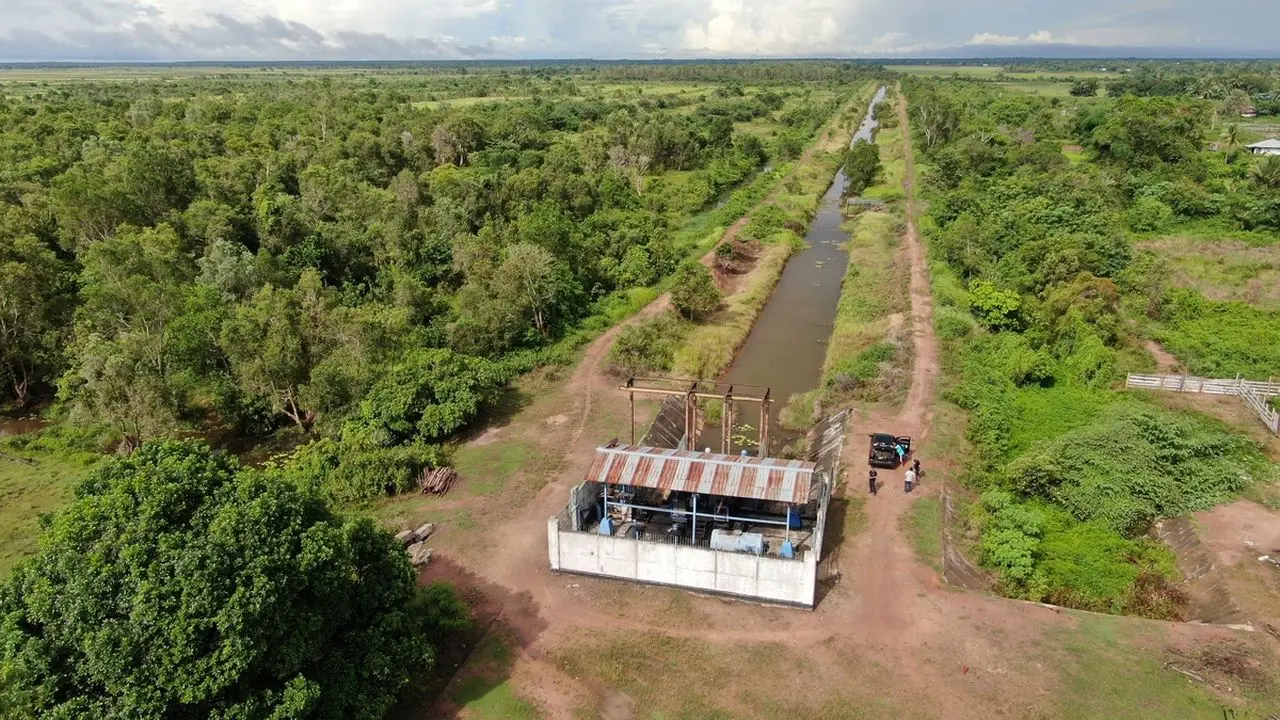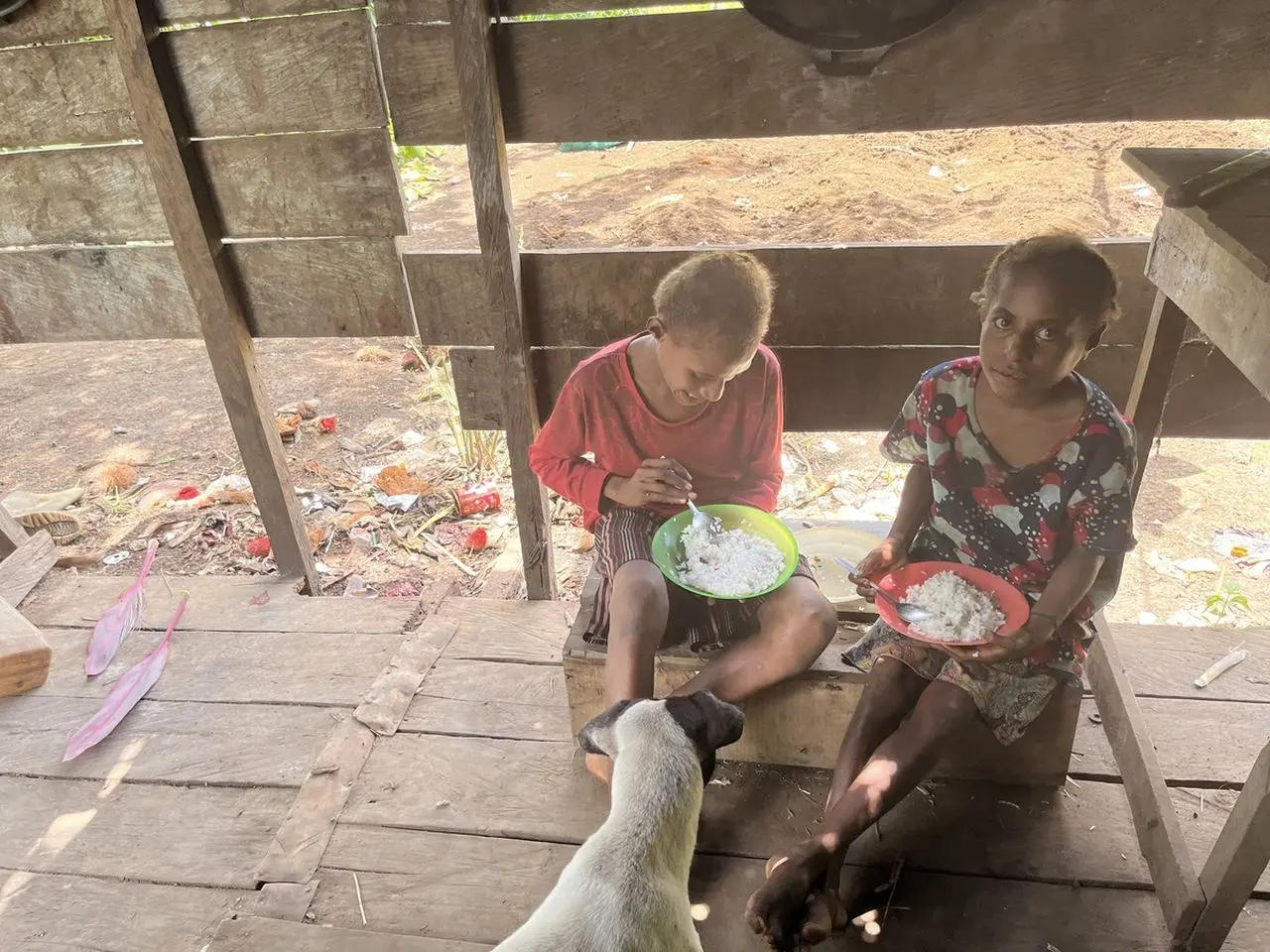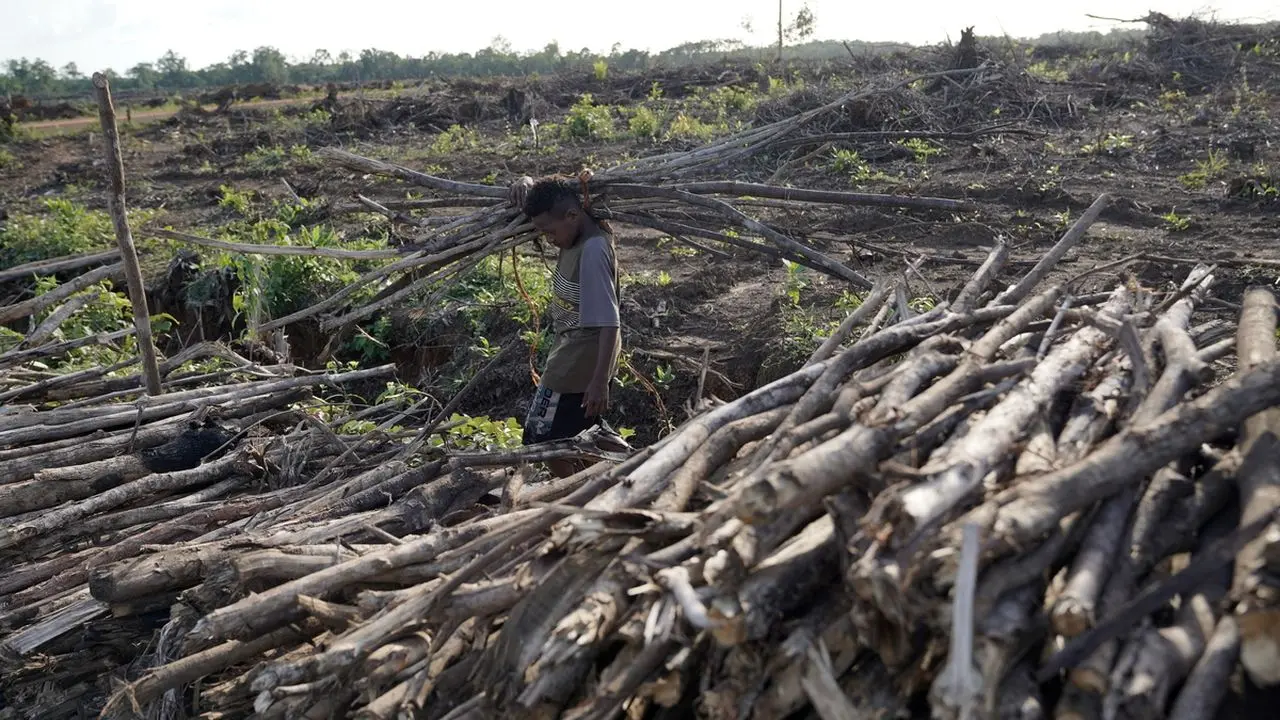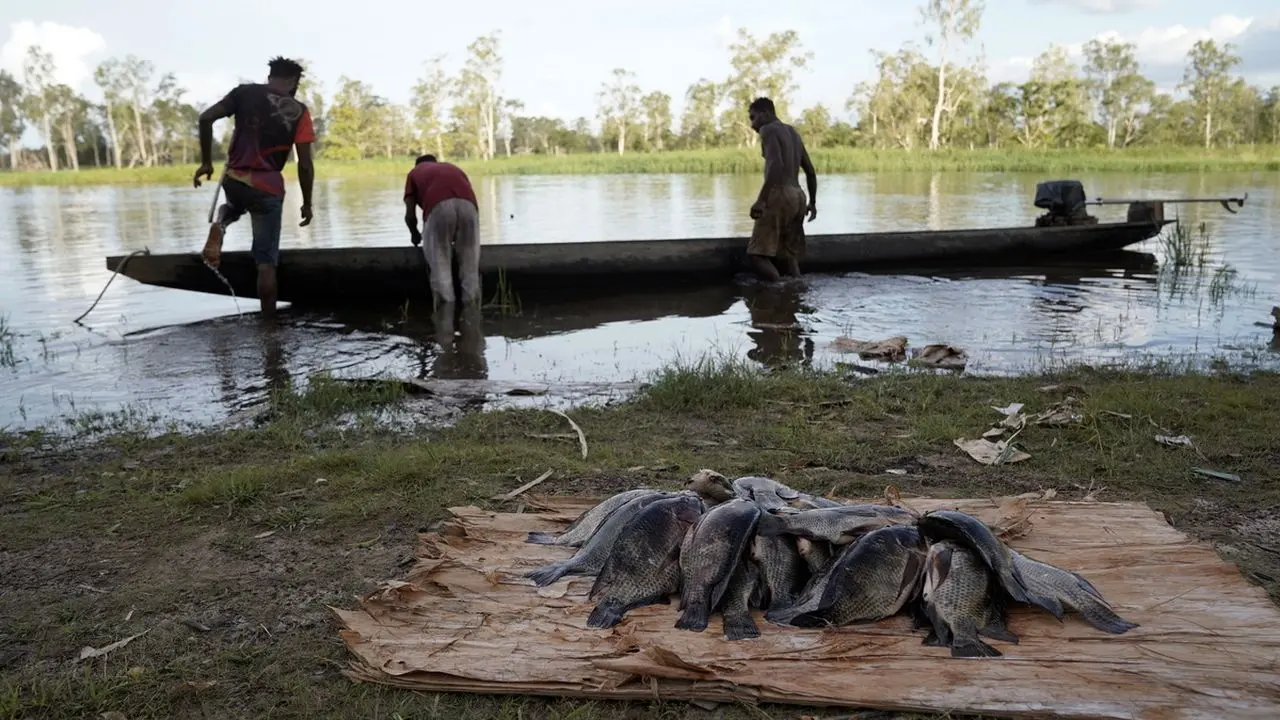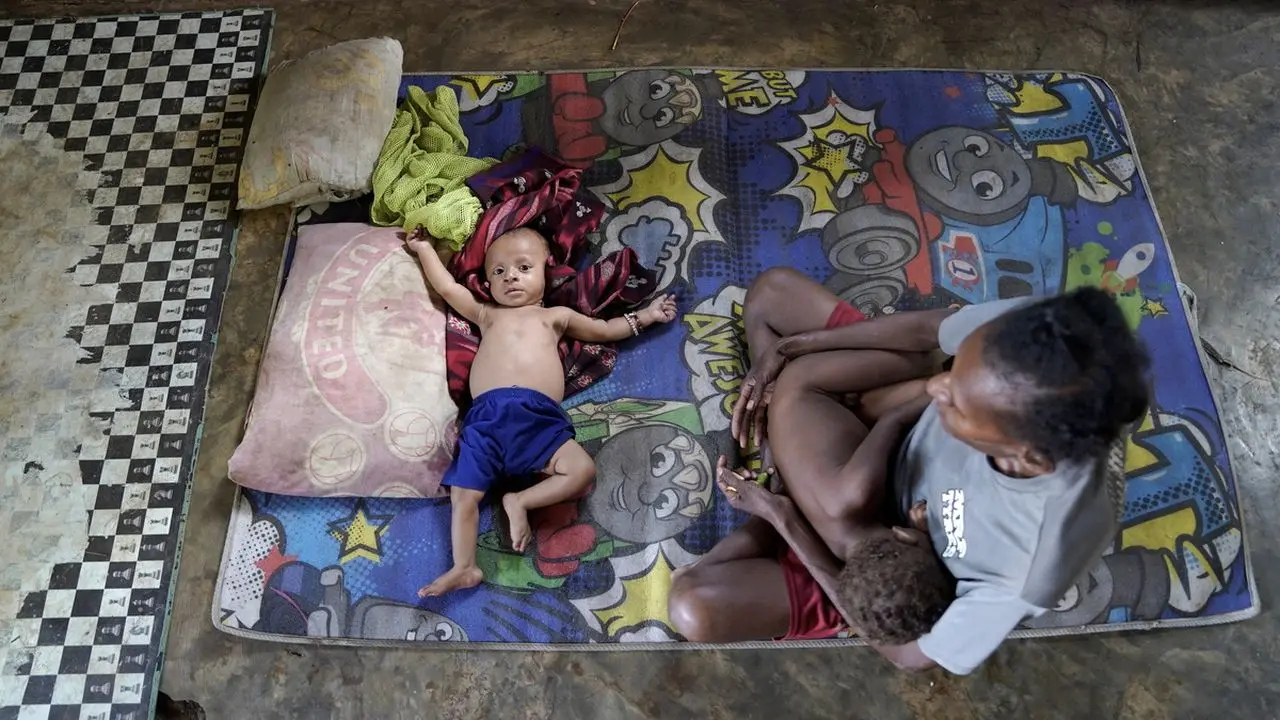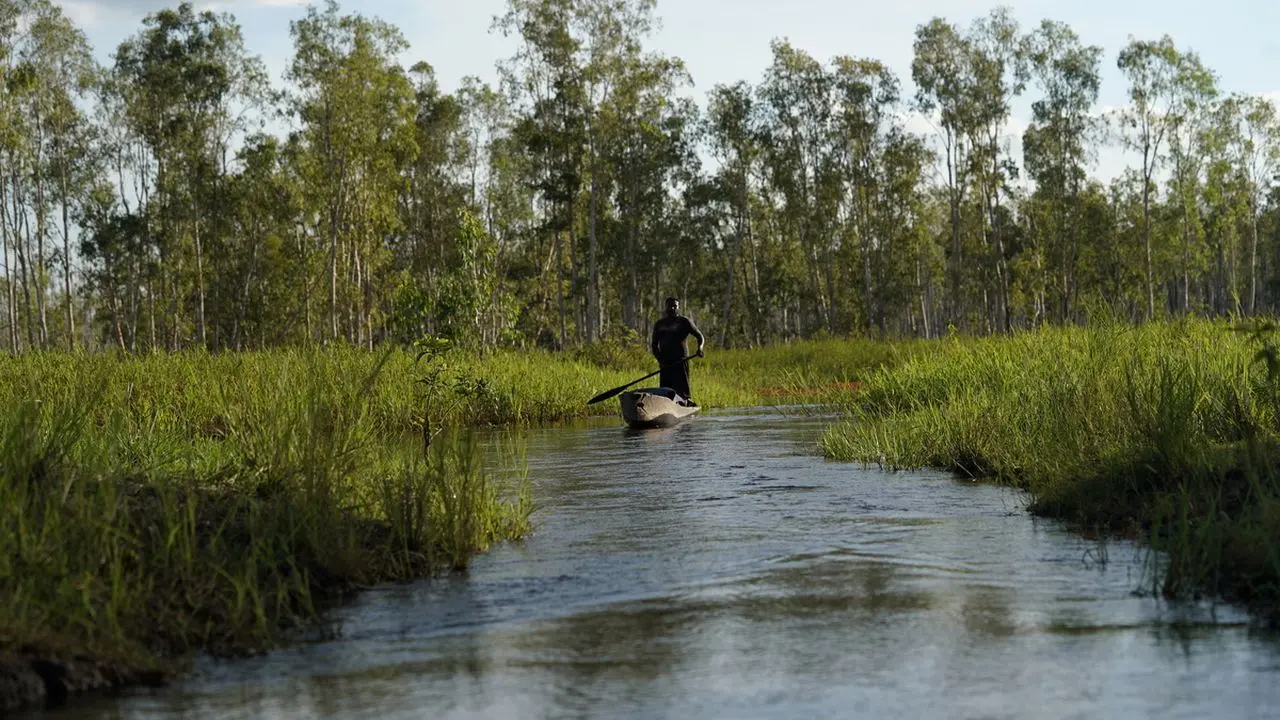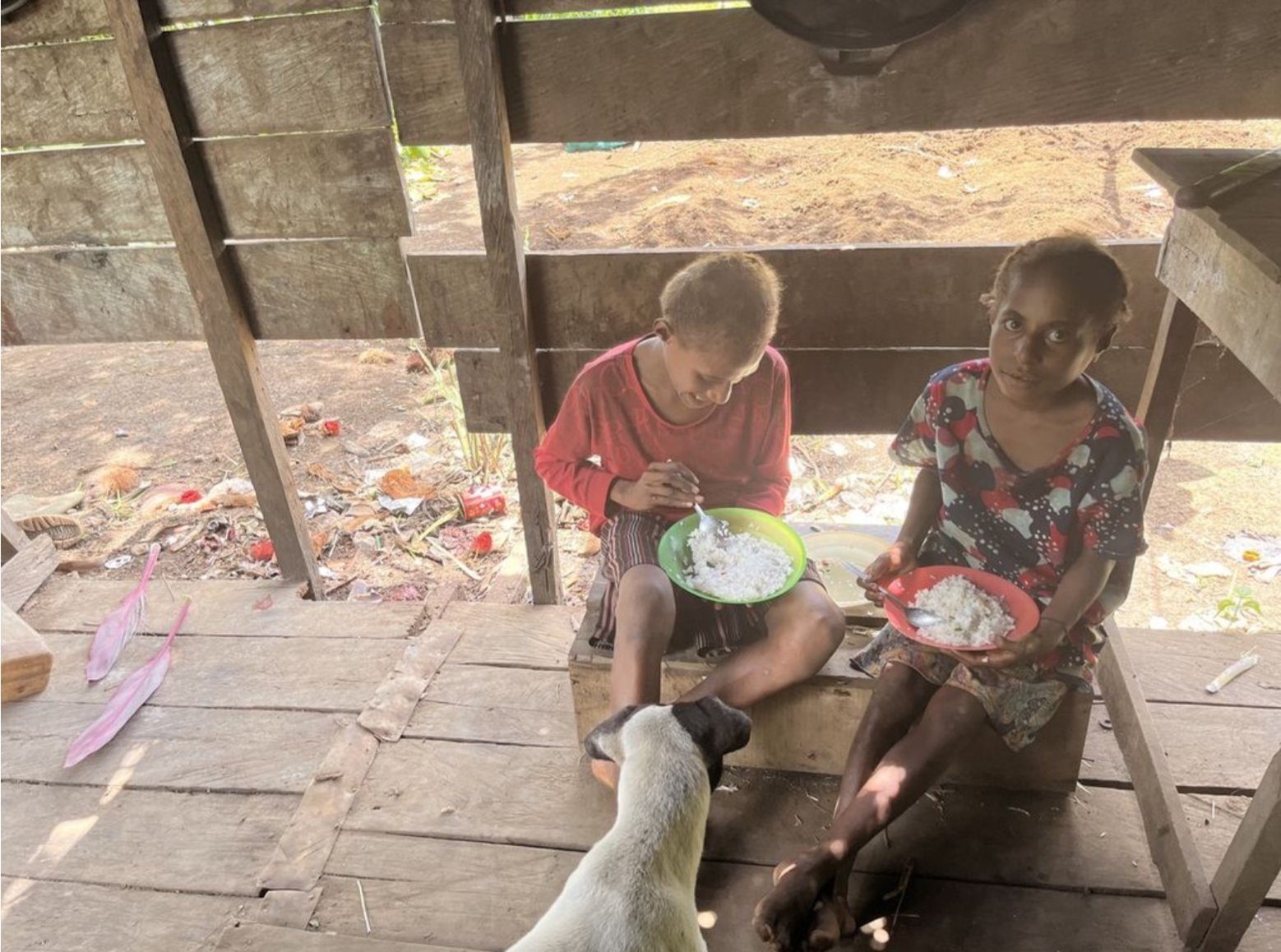This story excerpt was translated from bahasa Indonesia. To read the original story in full, visit Kompas. You may also view the original story on the Rainforest Journalism Fund website here. Our website is available in English, Spanish, bahasa Indonesia, French, and Portuguese.
The development of food belts in Merauke, by marginalizing the Marind-anim food system, has triggered food and health vulnerabilities of Indigenous Papuans. This is a form of gastrocolonialism.
JAKARTA, KOMPAS—The long process of establishing rice fields in Merauke has made the easternmost region of Indonesia a rice granary in Papua. Despite the rice surplus, the development scheme designed to improve national food security has caused local communities in Merauke to be food insecure.
Efforts to build rice barns with various rice field planting projects in Merauke started in 1955—when Papua was still controlled by the Dutch—with the construction of a rice bedrifjk (rice company) and rice fields in Kurik District. After becoming part of Indonesia, efforts to plant new rice fields in Merauke have continued by bringing in transmigrants since the 1970s.
Massive land changes in Merauke mainly occurred after forests that had been an important part of their food system were converted for the Merauke Integrated Food and Energy Estate (MIFEE) project inaugurated by President Susilo Bambang Yudhoyono in 2010. Since then, around 1.2 million hectares of land and forests that had previously belonged to Marind Anim have been converted, under the slogan "Feed Indonesia and feed the world."
After a brief hiatus, President Joko Widodo has revived the goal of making Merauke a food barn. The food barn plan in Merauke has become part of the national food security program in an effort to accelerate economic recovery and strengthen transformation in various sectors.
Not only causing food insecurity, such development policies also have the potential to erase the cultural identity, knowledge, and skills of local communities on food and health.
Presidential Regulation Number 108 of 2022 concerning the Government Work Plan for 2023 states that the food estate program is a strategic priority project and Merauke is one of its locations. Efforts to print new rice fields continue, in line with forest clearing for agro-industrial plantations and timber.
